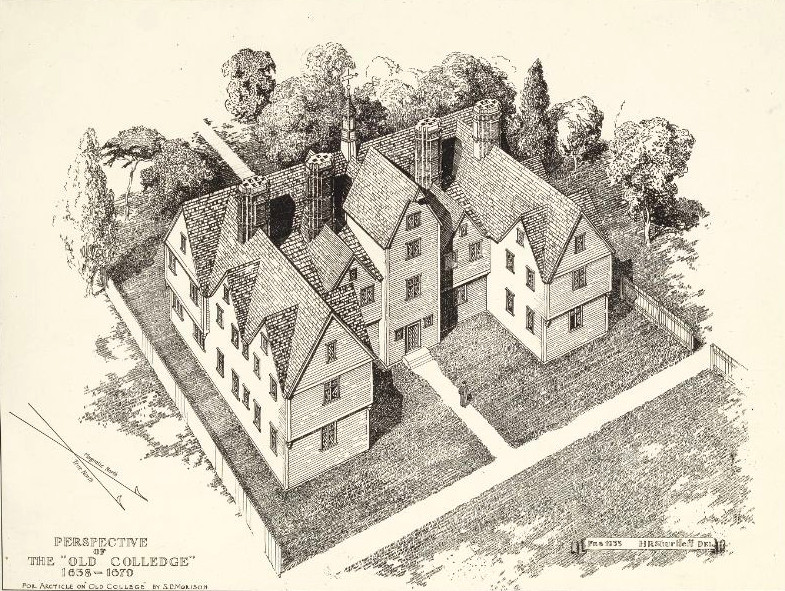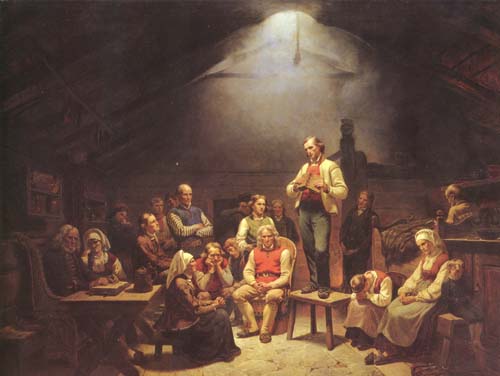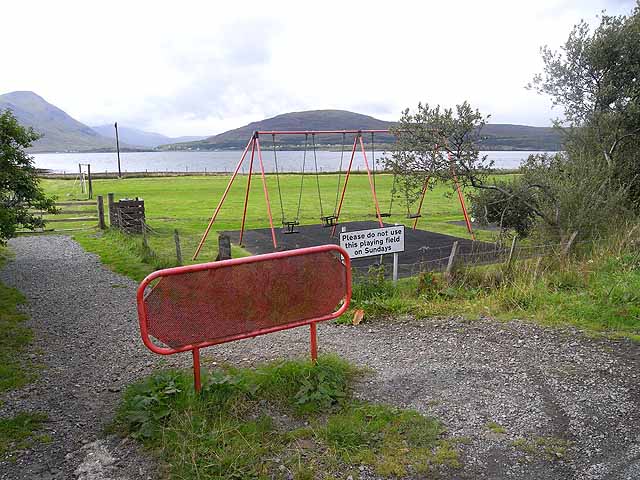|
Thomas Gould (Baptist)
Thomas Gould (c. 1619 – 1675) was the first pastor (lay preacher) of the First Baptist Church of Boston in Boston, Massachusetts, USA. Gould was born in Great Britain. After moving to Massachusetts, Gould became a successful farmer and wagon maker. Due to disagreements with Massachusetts' state Congregationalist (Puritan) church, Gould absented himself from Sabbath meetings. In 1655 he refused to allow his child to be baptized by the Congregationalist church in Charlestown, Massachusetts, where he was living and starting meeting with Henry Dunster, another anti-pedobaptist who was the first president of Harvard College. Another disagreement took place in the Cambridge church, and anti-pedobaptists began meeting in Gould's home. In 1665 Gould drew up a statement of faith for a Baptist congregation, which began meeting in secret on Noddle's Island in Boston harbor. The congregation was mainly Calvinist Calvinism (also called the Reformed Tradition, Reformed Protestantism, ... [...More Info...] [...Related Items...] OR: [Wikipedia] [Google] [Baidu] |
Pastor
A pastor (abbreviated as "Pr" or "Ptr" , or "Ps" ) is the leader of a Christian congregation who also gives advice and counsel to people from the community or congregation. In Lutheranism, Catholicism, Eastern Orthodoxy, Oriental Orthodoxy and Anglicanism, pastors are always ordained. In Methodism, pastors may be either licensed or ordained. Pastors are to act like shepherds by caring for the flock, and this care includes teaching. The New Testament typically uses the words "bishops" ( Acts 20:28) and "presbyter" ( 1 Peter 5:1) to indicate the ordained leadership in early Christianity. Likewise, Peter instructs these particular servants to "act like shepherds" as they "oversee" the flock of God ( 1 Peter 5:2). The words "bishop" and "presbyter" were sometimes used in an interchangeable way, such as in Titus 1:5-6. However, there is ongoing dispute between branches of Christianity over whether there are two ordained classes (presbyters and deacons) or three (bishops, priests, an ... [...More Info...] [...Related Items...] OR: [Wikipedia] [Google] [Baidu] |
Henry Dunster
Henry Dunster (November 26, 1609 (baptized) – February 27, 1658/59) was an Anglo-American Puritan clergyman and the first president of Harvard College. Brackney says Dunster was "an important precursor" of the Baptist denomination in America, especially regarding infant baptism, soul freedom, religious liberty, congregational governance, and a radical biblicism. Life He was born at Bolholt, Bury, Lancashire, England to Henry Dunster. Dunster studied at Magdalene College, Cambridge as a sizar, specializing in oriental languages and earning a reputation as a Hebrew scholar. He earned a bachelor's degree (1630) and his master's degree (1634) and taught at Magdalene. He served as Headmaster of Bury Grammar School and was a curate at Saint Mary's Church in Bury. Sponsored by Rev. Richard Mather, Dunster immigrated to Boston, Massachusetts in 1640. When Nathaniel Eaton was dismissed in 1639 as master of the recently established Harvard College, in Cambridge, Massachusetts, ... [...More Info...] [...Related Items...] OR: [Wikipedia] [Google] [Baidu] |
1675 Deaths
Events January–March * January 5 – Franco-Dutch War – Battle of Turckheim: The French defeat Austria and Brandenburg. * January 29 – John Sassamon, an English-educated Native American Christian, dies at Assawampsett Pond, an event which will trigger a year-long war between the English American colonists of New England, and the Algonquian Native American tribes. * February 4 – The Italian opera ''La divisione del mondo'', by Giovanni Legrenzi, is performed for the first time, premiering in Venice at the Teatro San Luca. The new opera, telling the story of the "division of the world" after the battle between the Gods of Olympus and the Titans, becomes known for its elaborate and expensive sets, machinery, and special effects and is revived 325 years later in the year 2000. * February 6 – Nicolò Sagredo is elected as the new Doge of Venice and leader of the Venetian Republic, replacing Domenico II Contarini, who had died 10 days ea ... [...More Info...] [...Related Items...] OR: [Wikipedia] [Google] [Baidu] |
1619 Births
Events January–June * January 12 – James I of England's Banqueting House, Whitehall in London is destroyed by fire."Fires, Great", in ''The Insurance Cyclopeadia: Being an Historical Treasury of Events and Circumstances Connected with the Origin and Progress of Insurance'', Cornelius Walford, ed. (C. and E. Layton, 1876) p. 29 Inigo Jones is commissioned to design a replacement. * February 14 – Earthquake flattens the town of Trujillo, Peru, killing hundreds in the town and causing landslides in the surrounding countryside killing hundreds more. * March 20 – Matthias, Holy Roman Emperor dies, leaving the Holy Roman Empire without an official leader, to deal with the Bohemian Revolt. * April – Battle of Sarhu: Manchu leader Nurhaci is victorious over the Ming forces. * May 8 – The Synod of Dort has its final meeting. * May 13 – Dutch statesman Johan van Oldenbarnevelt is executed in The Hague, after having been convicted of treason ... [...More Info...] [...Related Items...] OR: [Wikipedia] [Google] [Baidu] |
Calvinist
Calvinism (also called the Reformed Tradition, Reformed Protestantism, Reformed Christianity, or simply Reformed) is a major branch of Protestantism that follows the theological tradition and forms of Christian practice set down by John Calvin and other Reformation-era theologians. It emphasizes the sovereignty of God and the authority of the Bible. Calvinists broke from the Roman Catholic Church in the 16th century. Calvinists differ from Lutherans (another major branch of the Reformation) on the spiritual real presence of Christ in the Lord's Supper, theories of worship, the purpose and meaning of baptism, and the use of God's law for believers, among other points. The label ''Calvinism'' can be misleading, because the religious tradition it denotes has always been diverse, with a wide range of influences rather than a single founder; however, almost all of them drew heavily from the writings of Augustine of Hippo twelve hundred years prior to the Reformation. The ... [...More Info...] [...Related Items...] OR: [Wikipedia] [Google] [Baidu] |
Noddle's Island
Noddle's Island was historically one of the Boston Harbor Islands off Boston, Massachusetts. Most of the original land of Noddle's Island now makes up the southern part of the neighborhood of East Boston; it is now part of the mainland since the strait connecting Noddle's Island to Hog Island and that connecting Hog Island to the mainland city of Revere were filled in the early 20th century. The original contours of Noddle's Island were also greatly obscured by the 20th-century construction of Logan International Airport, which filled the tidal flats between Noddle's Island and Governor's, Bird, and Apple islands to its east. In some sources it is spelled "Noodle's Island". History For over three hundred years, the island was known as Noddle's Island, for William Noddle, who was probably sent out by John Brereton, and settled upon it in the 1620s, before Boston was established by the Puritans. The island was used for grazing livestock and there was a fortified structure on the ... [...More Info...] [...Related Items...] OR: [Wikipedia] [Google] [Baidu] |
Anti-pedobaptist
Believer's baptism or adult baptism (occasionally called credobaptism, from the Latin word meaning "I believe") is the practice of baptizing those who are able to make a conscious profession of faith, as contrasted to the practice of baptizing infants. Credobaptists believe that infants incapable of consciously believing should not be baptized. The mode of believer's baptism depends on the Christian denomination, and is done either by pouring (the normative method in Mennonite, Amish, and Hutterite churches) or by immersion (the normative method practiced by Schwarzenau Brethren, River Brethren, Baptists, and the Churches of Christ, among others). Certain denominations of Methodism, including the Free Methodist Church and Evangelical Wesleyan Church, practice infant baptism for families who desire it for their children, but provide a rite for child dedication for those who have a preference for believer's baptism only after their child has made a personal acceptance ... [...More Info...] [...Related Items...] OR: [Wikipedia] [Google] [Baidu] |
Harvard College
Harvard College is the undergraduate college of Harvard University, an Ivy League research university in Cambridge, Massachusetts. Founded in 1636, Harvard College is the original school of Harvard University, the oldest institution of higher learning in the United States and among the most prestigious in the world. Part of the Faculty of Arts and Sciences, Harvard College is Harvard University's traditional undergraduate program, offering AB and SB degrees. It is highly selective, with fewer than five percent of applicants being offered admission in recent years. Harvard College students participate in more than 450 extracurricular organizations and nearly all live on campus—first-year students in or near Harvard Yard, and upperclass students in community-oriented "houses". History The school came into existence in 1636 by vote of the Great and General Court of the Massachusetts Bay Colony—though without a single building, instructor, or student. In 1638, the colleg ... [...More Info...] [...Related Items...] OR: [Wikipedia] [Google] [Baidu] |
Charlestown, Massachusetts
Charlestown is the oldest neighborhood in Boston, Massachusetts, in the United States. Originally called Mishawum by the Massachusett tribe, it is located on a peninsula north of the Charles River, across from downtown Boston, and also adjoins the Mystic River and Boston Harbor waterways. Charlestown was laid out in 1629 by engineer Thomas Graves, one of its earliest settlers, during the reign of Charles I of England. It was originally a separate town and the first capital of the Massachusetts Bay Colony. Charlestown became a city in 1848 and was annexed by Boston on January 5, 1874. With that, it also switched from Middlesex County, to which it had belonged since 1643, to Suffolk County. It has had a substantial Irish-American population since the migration of Irish people during the Great Irish Famine of the 1840s. Since the late 1980s, the neighborhood has changed dramatically because of its proximity to downtown and its colonial architecture. A mix of yuppie and upper-mid ... [...More Info...] [...Related Items...] OR: [Wikipedia] [Google] [Baidu] |
Lay Preacher
Lay preacher is a preacher or a religious proclaimer who is not a formally ordained cleric Clergy are formal leaders within established religions. Their roles and functions vary in different religious traditions, but usually involve presiding over specific rituals and teaching their religion's doctrines and practices. Some of the ter ... and who does not hold a formal university degree in theology. Lay preaching varies in importance between religions and their sects. Although lay preachers in many Christian denominations may be accorded titles such as Reverend or Pastor as a courtesy by people – including those in their congregation – it is only once a priest, cleric, minister or reverend has been ordained that he/she can correctly adopt that title. Movements which encourage lay preachership include: * Awakening (Finnish religious movement), Awakening (Lutheran movement, especially see Hans Nielsen Hauge, Paavo Ruotsalainen, and lay preachers organized by Lars Levi Laes ... [...More Info...] [...Related Items...] OR: [Wikipedia] [Google] [Baidu] |
Sunday Sabbath
Sabbath in Christianity is the inclusion in Christianity of a Sabbath, a day set aside for rest and worship, a practice that was mandated for the Israelites in the Ten Commandments in line with God's blessing of the seventh day (Saturday) making it holy, "because on it God rested from all his work that he had done in creation". The practice was associated with the assembly of the people to worship in synagogues on the day known as Shabbat. Early Christians, at first mainly Jewish, observed the seventh-day Sabbath with prayer and rest, but gathered on the seventh day, Saturday, reckoned in Jewish tradition as beginning, like the other days, at sunset on what would now be considered the Friday evening. At the beginning of the second century Ignatius of Antioch approved non-observance of the Sabbath. The now majority practice of Christians is to observe Sunday, called the Lord's Day, rather than the Jewish seventh-day Sabbath as a day of rest and worship. Possibly because of a movemen ... [...More Info...] [...Related Items...] OR: [Wikipedia] [Google] [Baidu] |
.jpg)


.jpg)


